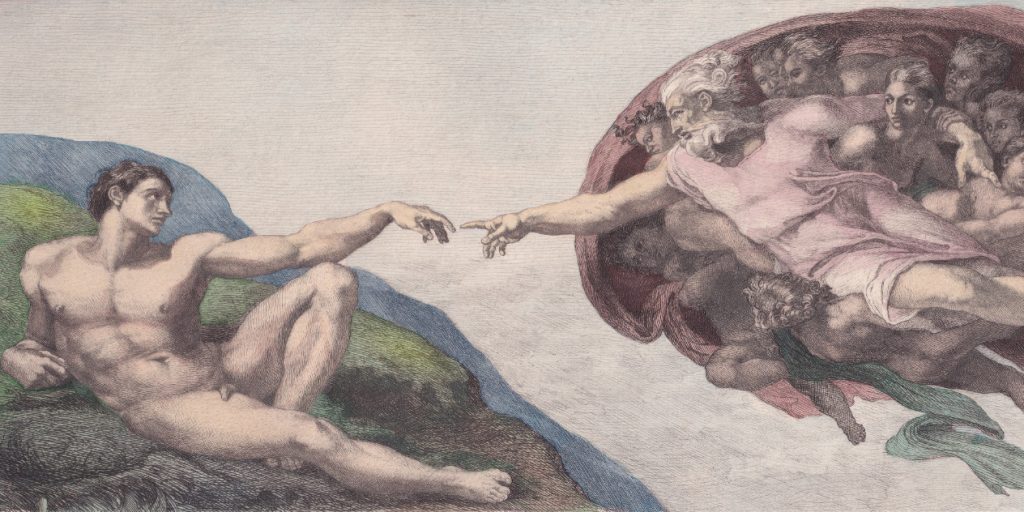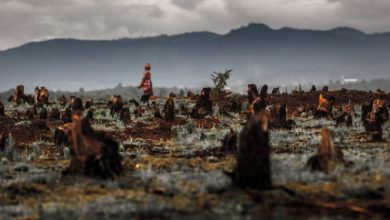Why Humans Don’t Care About Nature – Part II

This is Part II of a 3-part series. Go to: Part I, Part III
A recent book “Theology and Climate Change” by Paul Tyson examines this question of the origins of our current guiding ideology in great detail. The starting point of his argument is worth repeating:
“Given that the global culture of our times is deeply shaped by Western colonial influence over the past 500 years, and empowered by Western science, technology and patterns of natural resource exploitation, if there is a cultural driver of global ecological crisis, it is Western. This is not an anti-Western observation. Given that the religious underlay of today’s secularized and post-Christian West is Christian, if there is a religious driver still shaping the underlying cultural attitudes of Western approaches to nature, it is Christian. This is not an anti-Christian observation.”
His central argument is that a particular type of Western and Christian theology that he calls “Progressive Dominion Theology (PDT)” profoundly shapes the modern and Western outlook on nature. He further argues that, despite the name, PDT applies to all modern Western thought, irrespective of whether they are held by Christians or those who have explicitly renounced Christian theology. On his reading, the assumptions are held so deeply, and despite the fact that their (theological) origins have been long forgotten, “that [this] theology remains a primary cultural force shaping the practices and values that define our life-world”.
That we are not aware of either the origins or historic changes in meanings behind deeply held beliefs should not be controversial. A good example of this might be commonplace beliefs about marriage, which today is understood as a state-sanctioned, monogamous relationship between two humans (or a man and a woman until more recently). Yet historically marriages did not become monogamous until the early middle-ages sometime around the 8th century. They were also understood then as property (and power) related contracts between families, they did not become broadly state-sanctioned until the 19th century. Even the church accepted a couple’s word that they had exchanged marriage vows, with no witnesses or corroborating evidence needed, until the early 16th century.
Our understanding of nature has undergone a similar process of changed meaning due to our changing understanding of science and technology. And our notions of science and technology are deeply intertwined with the evolution of Christian theology. For example, Tyson points out that our linear notion of time and our steadfast belief in a linear, purposeful history is Christian in nature. Most previous societies, from hunter-gatherers to agrarian societies and Egyptian and Greco-Roman civilisations, held largely cyclical or degenerative views of time and assigned time or history no direction as such.

In addition to the linear notion of time and history, Western Christianity also adopted a profoundly practical, power-based relation to nature. In our modern understanding, nature has no inherent meaning and hence no inherent value. It is not divine, as in most earlier theologies. We do not equate Earth/nature to a goddess that gives life. Instead, we are happy to talk about ‘natural resources’, a term that commodifies nature to that which can be exploited for human gain.
Further, in our science that which has no proof, has no truth. That is the essence of the ‘scientific method’, which is based on sensory perception and measurement. And since meaning and purpose sit outside sensory perception and scientific measurement, there can be no meaning, no inherent truth to nature. This is not a critique of the scientific method; it is a critique of a worldview based entirely on science and the scientific concept of truth.
The result of this practical, scientific, ‘without inner meaning or divinity’ view of nature means that is perfectly ok for us, as humans, to make nature fit ‘our’ purpose. In fact, it puts no constraints at all on what we do with nature. It is not just ok for humans to exploit nature, ‘progress’ demands that we do so. We can and should act as nature’s overlords.

This domination approach to nature finds its expression today in business operating in a moral vacuum. BP releasing millions of barrels of crude oil into the Gulf of Mexico is an ‘unfortunate accident’ that can be dealt with by a superficial clean-up and some notional penalty payment. It is not a crime against nature or against creation, it is not an act of blasphemy. No moral dimension is assigned to the actions of the company or its executives. We have separated morality from nature and now we find there are no moral reasons why terribly damaging nature is actually wrong.
This view that nature should only be understood in terms of concrete existing things has been dominant since the late 14th century. It was already present at the birth of modern science and was developed within Christian theology by Franciscan monks.
The second shift that happened around the same time is that the primary quality of God went from being love to being all-powerful. God became more of a rational and metaphysical principle than the living, feeling, historically acting God of the Christian scriptures. The West’s deep commitment to individual freedom and self-determination comes from this shift, as explained by Tyson:
“God’s complete sovereignty, as ungoverned by any external necessity, becomes a central feature of fourteenth-century Franciscan theology. God is totally free and all-powerful, and we are created in God’s image, so we too are created for freedom and powerful creative action. By the early modern period rulership (sovereignty) over the physical world and all the creatures under heaven, and a creative will that can generate its own plans and intentions and follow them up (as distinct from being the necessary function of external causes and effects), were increasingly becoming central to the Western understanding of the meaning of being human.”
This presumption of sovereignty, of rulership, over nature is now so deeply embedded in our assumptions of ‘being human’ that we no longer notice its origins and we have only just begun to question its usefulness to securing our continued existence.
To summarise, over the centuries since this process started what we have ended up with today is a universally held belief in our own ever-increasing power and sovereignty (free will), through the ‘progress’ provided by science and technology. We will examine what this means in Part III.
Our work is entirely reader-supported, so if you enjoyed this article please consider sharing it around, following us on Twitter or LinkedIn, or throwing some money into our tip jar on Paypal. Everything we publish is open access. Finding the time to do the research and writing is helped by the goodwill of people who are also looking for real answers to what is happening. The best way to make sure you don’t miss the articles we publish is to subscribe to the mailing list at our website.

Peter Lanius is a physicist by training who has worked in IT, Telecoms and as an executive coach across many industries. He believes in collapsing early to avoid the rush and lives on a 20acre property in regional Australia.





